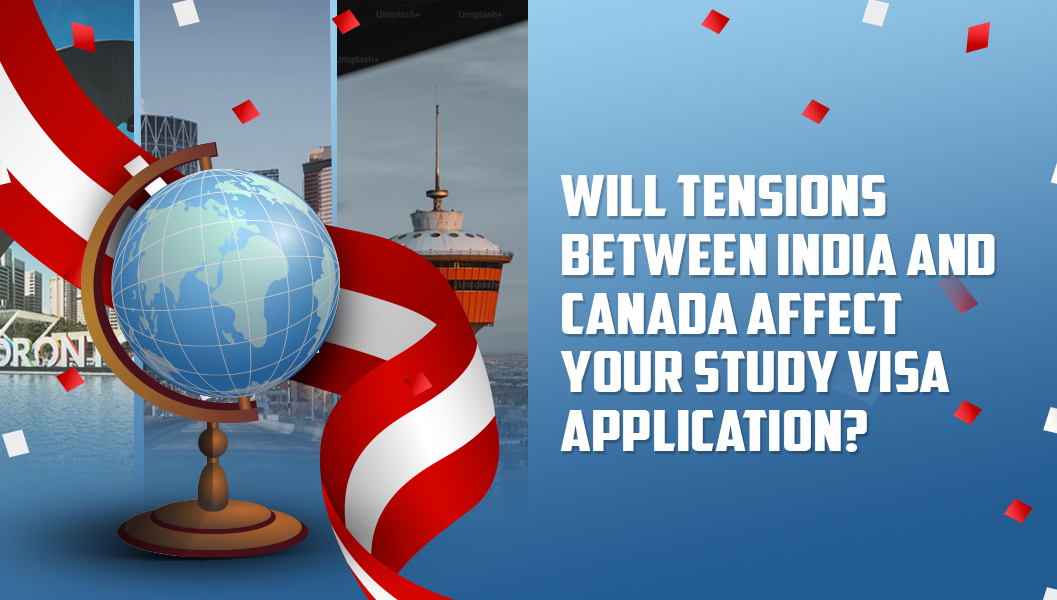
Will Tensions Between India and Canada Affect Your Study Visa Application?
Recent diplomatic tensions between India and Canada have raised concerns among many Indian students considering studying in Canada. As Canada is a popular study-abroad destination for Indian students, these rising tensions have raised concerns about the potential impact on their educational plans.
Key Developments
Diplomatic Downgrading: India’s expulsion of six Canadian diplomats and withdrawal of its High Commissioner have significantly reduced operational capacity at Indian missions in Canada.
Visa Restrictions: India’s temporary suspension of visa issuance to Canadian citizens last year caused significant difficulties for many in the Indian diaspora.
Prioritization of Visas: India gradually resumed visa services, prioritizing business and medical visas while navigating the strained diplomatic backdrop.
Canadian Visa Restrictions: Canada has also paused visa and in-person consular services in several major Indian cities.
Limited Air Connectivity: Travel between the two nations remains hindered by the absence of direct air connectivity.
International Student Visa Cap: Canada’s imposition of a cap on international student visas has notably impacted Indian students, who compose a significant portion of the country’s international student population.
Implications for Study Visas
The diplomatic downsizings and ongoing tensions have the potential to decrease the number of visas issued, compounding existing challenges as visa numbers are already at a low. This situation has been exacerbated by the fallout over the killing of Khalistani activist Hardeep Nijjar in Canada.
What to Expect?
While it’s difficult to predict the exact trajectory of these diplomatic tensions, it’s clear that they will continue to influence the ease with which individuals can obtain visas to travel between India and Canada. For students seeking to study in Canada, it’s advisable to stay informed about the latest developments and to be prepared for potential delays or restrictions.
Recommendations for Prospective Students
Plan Ahead: Given the current uncertainty, it’s recommended to apply for visas well in advance of your intended travel dates.
Stay Informed: Keep up-to-date with the latest visa policies and guidelines from both Indian and Canadian authorities through reliable sources only.
Consider Alternative Options: If you’re facing significant delays or difficulties in obtaining a Canadian study visa, explore alternative study destinations.
Seek Professional Advice: Consult with an immigration consultant or lawyer who specializes in Canadian immigration for personalized guidance and support.
The diplomatic tensions between India and Canada have created a complex environment for individuals seeking to travel or study between the two countries. While the temporary suspension of visa services may present challenges, it’s crucial to maintain flexibility and consider alternative plans if necessary. For students planning to study in Canada, staying informed about the ongoing developments is essential. Remember, while the situation may be uncertain, focusing on your academic goals and seeking professional guidance can help you navigate these challenges successfully.
More Insights
Understanding the Importance of Stay back Opportunities for International Students
Studying abroad is a dream for many students because they want to get a quality education, international experience, and advance…
Key Factors to Consider When Applying for a Student Visa
Student Visa application is one of the important thing in your journey to studying abroad. Student visa application process can…
Canada Proposes a 20% Reduction in Immigration Levels by 2025
Canada, traditionally known for its welcoming immigration policies, is undertaking a significant shift. Recent reports, including a Business Standard article,…

